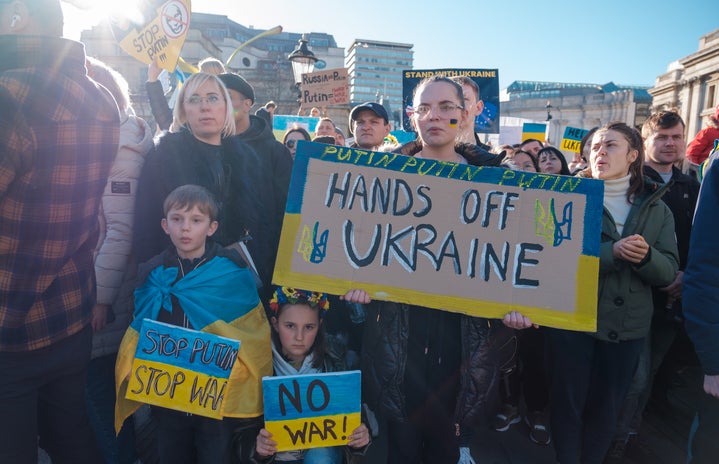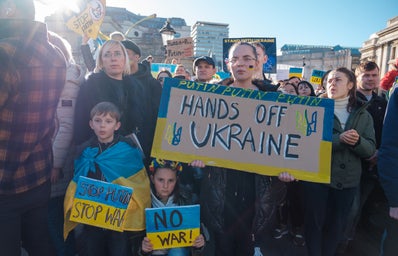Russia deployed military forces into its Eastern European neighbor, Ukraine, on February 24th. Since then, news outlets and social media have been flooded with outcries of support for Ukrainian citizens and updates on the events in Ukraine. While shocking, the current Russo-Ukraine conflict is not a new one — this military conflict has been brewing since the Cold War.
Prior to the collapse of the USSR in 1991, Ukraine had been a founding member of the Soviet Union. After the collapse, Ukraine was disaffiliated with Russia. While NATO continued eastward expansion, the idea of Ukraine joining NATO was suggested. Though Ukraine has still yet to join NATO, Putin felt that this threatened Russia’s position as a communist superpower. In a long piece Putin himself published, he stated that Ukraine had been developed by communist Russia but now is simply a puppet state for Western superpowers. He also feels that NATO had promised not to expand further eastward in the early 1990s, but instead continued by suggesting the entrance of Ukraine.
Putin still believes that Ukraine is “culturally and historically” a part of Russia. Since the removal of pro-Russian president Viktor Yanukovych following protests in 2014, Putin claimed that Ukraine had been taken over by extremists. A poll that same year showed that Ukraine voted 58% in favor of joining the EU and just 21% in joining the Russian bloc. Ukraine’s independence from Russia is also suggested by the country increasingly speaking its own language, not Russian. Yet this socio-political distance is not enough, as the physical proximity has lent itself to a high vulnerability to attack.
Russia has justified the most recent Ukraine invasion as a “de-Nazification,” not a war or invasion. This term, coded to identify Ukraine as a Western puppet state, is rather unjustified as Ukraine remains a vibrant democracy with a Jewish president. Perhaps this argument is best nullified by the stark question of president of Ukraine Volodymyr Zelensky, a Jewish man — “How could I be a Nazi?”
The February 24th invasion targeted major airports and military headquarters in Ukraine, and tanks and troops have been entering Ukraine from Russia since then. Russian troops have captured Kherson, granting Russians more control of the Southern Ukrainian coastline. On a road north of Kyiv, the capital of Ukraine, Russians have maintained a military convoy some 40-miles long. This has threatened to encircle the capital, or perhaps engage in a full-on capital assault. Of higher concern, Putin raised the alert of nuclear weapons — the first time he has publicly announced combat readiness for nuclear weapons.
On the Ukrainian support side, many countries have opted to provide military services and arms to the country itself. These countries do face retaliation from Russia itself, hence why NATO has begun to funnel military aid into member states which border Russia and Belarus. The EU, US, and Canada have also shut down some airspace to planes used by Russian oligarchs.
Most likely, Putin wants a formal agreement that Ukraine would never join NATO, which would more firmly maintain Russian rule over it. As many news outlets put it, he hopes this would “turn back the clock 30 years,” when Russia had a dominant sphere of influence. Whether peace talks will ensue is unclear, though the discussion did begin on February 28th when the Ukraine delegation met with Russian envoys on the border of Belarus.
While Ukraine is not an EU member, the European continent has definitely been shaken by the events. French President Emmanuel Macron called these some of Europe’s darkest days and likened it to a turning point in European history. German Chancellor Olaf Scholz warned that Putin wants “a Russian empire.” The returning iron curtain may not be falling on the EU directly, but the neighboring countries of Ukraine are certainly feeling anxious about the event.
Russian aggression is being met with notable distaste globally, and with strong countries like the US and EU states expressing Ukrainian support, we can hope that this war will not continue to starve and take the lives of civilians. At the end of the day, maybe all we can do is stay safe, stay sane, and eat the rich.


